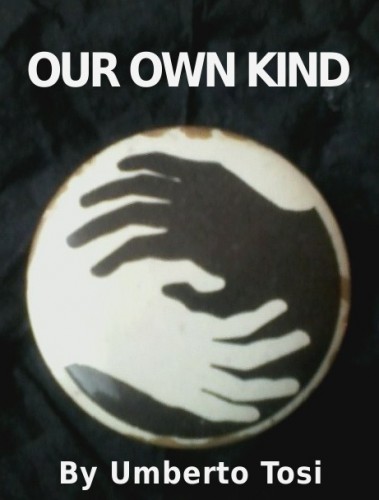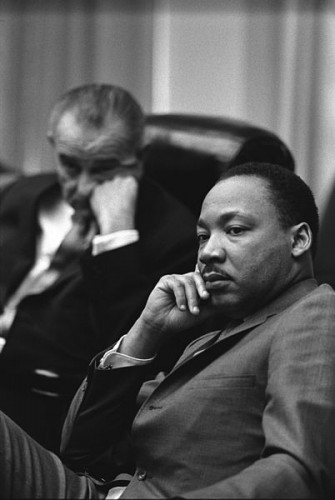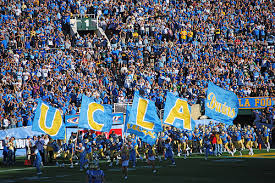Honey talks about Helen Jackson’s Ramona
NOTES FROM ABOVE GROUND
By Honey van Blossom
(Honey is a Belgian Marxist former strip-tease artiste)
In a voiceover to Billy Wilder’s noir film classic Double Indemnity (1944), adapted by Raymond Chandler from a James M. Cain novel, insurance salesman Walter Neff (Fred MacMurray) describes the house where psychopathic killer Phyllis Dietrichson (Barbara Stanwyck) lives as: “It was one of those California Spanish houses everyone was nuts about 10 or 15 years ago. This one must have cost someone about 30,000 bucks – that is, if he ever finished paying for it.”
Cain’s joke or note in his book was that architect Wallace Neff designed a great many of Southern California’s “Spanish” houses, drawing on styles that evoked the Spanish missions.
Art historian Rexford Newcomb described the genesis of then- contemporary (1937) Spanish architecture:
“….Spanish blood, Spanish institutions and consequently Spanish architecture was of necessity cosmopolitan. But the primitive Iberians were not great architects; therefore the real beginnings of architecture in Spain may be said to date from the period of Roman domination. The Moors contributed a certain oriental quality, many effects of which are to be detected in the provincial expressions of Texas, Arizona and California.” Read more
Gaza From The Perspective Of A Proud Diaspora Jew
Jewish settlers taunting a Palestinian woman who has just been evicted
By LIONEL ROLFE
I have been doing my best not to think too much about Gaza, not only publicly but for myself. I can no longer avoid pondering all the uncomfortable thoughts Israel’s bombing of Gaza is bringing home to me. Of one thing I’m sure of—I want to tell Netanyahu, “I told you so.” Netanyahu’s purpose was always designed to prevent any chance of rapprochement. What’s unfolding was foretold by him.
Netanyahu has forced me to question my relationship to Israel in a fundamental way. I have some strong credentials as a Jew. I come from the centuries-old Schneersohn dynasty of the Chabad movement of Hasidic Judaism. When the last rebbe, who was the closest thing to a pope Judaism ever had, died, his followers expected he would be the messiah. It turned out he just died, and was not the messiah. During that period, when they were looking for his replacement, some powerful Lubavitchers approached me. I was more of the bloodline than the last rebbe, so my bloodline made me attractive to them. Even when I pointed out I was not a good candidate—that I was an atheist and a socialist, they wanted to keep talking. Of course being an atheist and a socialist would not have saved me from the death camps, quite the contrary. So we talked. In the end it was not to be. But as a Jew, I was deeply affected by my knowledge of the Holocaust. My study of the Holocaust became an obsession. Read more
Hamas, Islamic State, and Dreams of a World Caliphate
Leslie Evans
Lionel Rolfe and I have been friends since we met at Los Angeles High School around 1958. I enjoy his company and his journalism. I have no Jewish credentials to match his, either in his family or his wide life experience with Jewish periodicals or in Israel. My mother was Jewish but my father was not and I had little exposure growing up to Jewish religion or culture. Still I felt the need to round out Lionel’s present piece on Israel and Gaza, which focuses on the long drift to the right of Israeli politics, with a piece on the Arab-Muslim side of that endless conflict. To paraphrase George Bernard Shaw, Lionel has been so eloquent on the negative side of the Israeli establishment that it calls for an equal treatment on the drawbacks of the alternative establishment.
* * *
Western liberalism, despite its many admirable qualities and causes, its antiracism, defense of women’s and gay rights, advocacy of the welfare state, and opposition to national or colonial oppression, frequently fails to understand Islamic radicalism in general and its Palestinian expression in Hamas in particular. This is the lingering influence of the Enlightenment, which infused Western society with the idea that religion is passing away, that people are essentially reasonable, and if they engage in violent struggles it must be because they have been wronged over some tangible material benefit they have been denied. All that is needed to fix things is to supply the missing material needs. Marxism is an extreme example of this viewpoint. This amounts to historical ignorance or collective amnesia of Europe’s own past with its centuries of bloody religious wars.
Where this involves the conflict between Hamas and Israel there is also an element of the deep cultural antipathy toward Jews that is the inheritance of Western Christendom. This reappeared with renewed virulence during the seven-week Israel-Gaza war that ended August 26, with physical assaults on Jews, firebombing synagogues, trashing markets that sell Jewish food products, and crowds shouting “Hamas, Hamas, Jews to the Gas!” These outbursts took place primarily in Europe, in France, Britain, the Netherlands, Italy, and Germany, but individual Jews were assaulted in several cities in the United States. Read more
Siren Song, Chapter Two, Umberto Tosi’s “Our Own Kind”
2. SIREN SONG
Six months earlier. New Year’s day.
Ring, ring, ring! Goddammit! Who’s calling this early? It’s barely light. The phone won’t stop hurting his head. It pings merrily off the bare hardwood floors and sparse furnishings of Benny’s rented cottage.
The cottage was a real find, just below Mulholland Drive– perfectly in the path of brush fires and mudslides. Chipped, Spanish stucco and red tiles, once a guest house on an estate that belonged to Charlie Chaplin, now subdivided, a cozy three-bedroom. Benny hears the rain between rungs – staccato against his windows. They said ’68 would be wet. That’s L.A. – drought or downpour, fame or famine, and junk food feasting. Read more
ALL FOR THE LOVE OF THE GAME OF COLLEGE FOOTBALL
By Bob Vickrey
I can’t remember the precise date of our anniversary, but I must have taken traditional vows like everyone else did: “I take you to be my faithful partner and my love from this day forward and to cherish you for as long as we both shall live.”
Looking back at our long relationship, I can truthfully say I’ve honored these vows and still have the same love for college football that I did when I made that commitment many years ago.
If your sports background began with Texas high school football like mine did, the love affair with the game was naturally acquired. The “Friday Night Lights” syndrome was—and is—very much alive and well in my home state. High school football madness has dominated community discussions every fall for many decades in big cities as well as in small towns across the state. Read more
Mary Reinholz’s Fantastic Journey, “Exit From Eden,” Continues
CHAPTER 15
Richard, the Chelsea Hotel’s British desk clerk, had told me recently of his suspicions that my upstairs neighbor Doria Nune was behind the death threat against Harvey Jewell, notorious publisher of the F.U. sex tabloid.
So it was no surprise that he looked skeptical when I told him that Doria didn’t strike me as the kind of radical feminist who could pull off the job.
“It just doesn’t make sense,” I said. “Doria is a starting a sexy new magazine for women. She used to work for Jewell. Why would she risk everything before it even hit the newsstands by threatening to kill a man who gave her job when she needed one?”
Richard sighed heavily. “Well, I didn’t know about her magazine, or her deal with Jewell and maybe I was wrong about Doria,” he said, looking haggard as he spoke. “But she still strikes me as dangerous beneath her hipper than thou exterior. I think she could be violent. I can see her going after Jewell, one way or another.”
“Oh Richard, she’s a delicate girl with health problems, “ I said, patting him on the shoulder. “She just talks tough.”
It was close to 1 pm, close to my lunch time interview with Jewell, and I noticed dark shadows under Richard’s rheumy blue eyes. I figured he was in a melancholy mood, recovering from a hangover.
“OK, Cassie,” he murmured. “Let’s suspend judgment on Doria. But Harvey Jewell is obviously a disgusting male chauvinist who’s repulsive to most decent women. I can’t believe you’re having lunch with him today. I’ve always thought of you as a nice girl from the coast. One of the sweetest girls in the hotel. Why would you agree to a date with this man? He’s somebody who could ruin your reputation.” Read more
Searching for Our Bohemian Past
[This is a blast from the sixteen-year-old past, talking about a still older past, from a column by the LA Times’ Patt Morrison of September 20, 1998.]
* * *
At intervals of a half-century or so, a utopian spirit was known to move across the country. With its propulsion, people struck out from old homes and old ways for the newer, the better, the purer. The Transcendentalists at Brook Farm in New England. The Oneida community, remembered now for forks and spoons. The Amana colony, living on vestigially in side-by-side refrigerators. And, of course, the original rigid utopians, the “my way or the highway” crowd who disembarked from the Mayflower.
Later the utopian impulse would propel thousands to California, where we individualized it, secularized it and renamed it “the dream,” the way a single human has dreams and many humans have a vision. Here its motto became one man-one utopia, its altar the brick barbecue, its baptismal font the swimming pool. Its variants are Autopia, one man-one car in Walt’s dream-world playland; fruitopia, the wacky fringe that plays center field for California, and dystopia, any place where a dream fails the dreamer or a vision succeeds so well it tyrannizes its visionaries.
Utopia, fruitopia or dystopia, Southern California laid claim to: the Elysia nudist colony, which thrived furtively above Tujunga. Gaylord Wilshire, the silk-hatted socialist millionaire and early health-food connoisseur, who published a utopian political newspaper; the richest street in Los Angeles bears his name. The Polish actress Helena Modjeska and her titled husband, who started a rustic retreat in Anaheim; it failed because none of its residents knew the first thing about farming. England’s Fabians, who found a warmer welcome in Pasadena. The socialist Llano del Rio cooperative colony in the Antelope Valley, which was briefly home to Aldous Huxley, whose novels swung between utopian and dystopian and who summed up the envy and the awfulness of Los Angeles in his observation that “the writer of ‘The Beverly Hillbillies’ earns more in a week than I do in a year.” Read more
Helen Hunt’s visit to Northern California
NOTES FROM ABOVE GROUND
By Honey van Blossom
(Honey is a Belgian Marxist former strip-tease artiste)
“… the river is everywhere at once, at the source and at the mouth, at the waterfall, at the ferry, at the rapids, in the sea, in the mountains, everywhere at once, and that there is only the present time for it, not the shadow of the past, not the shadow of the future.” – Hermann Hesse, Siddhartha (1922)
Helen Hunt Jackson’s life spanned the years between 1830 and 1885. She first visited California in 1872, twenty-six years after the entrapment of the Donner Party in a pass near Truckee. Samuel Clemens (1835-1910) spent a few years, off and on, in the 1860s in California. He wrote about his expedition with his older brother to Lake Tahoe, also near Truckee. Clemens and Hunt did not meet, of course, because their visits were a decade apart. Jackson did not meet Jack London (1876-1916. He was not to be born until four years after her first visit. When he was a teenager, Jack London rode on the top of the train to Truckee.
The study of history may sometimes seem to be a series of static photographs of great and small events. There was no photography before the nineteenth century. So before photography – paintings, myths, handprints on cave walls.
History is more like a movie of a voyage on a boat on a river. The river moves, the boat moves along the surface of the river. Insect life begins and ends and begins and ends. Riverine life beneath the boat changes, the water fills with debris from logging, mining and industrial pollutants, the landscape on the shore changes – the riparian forest thins, the native American villages vanish, churches, temples, houses and stores appear, disappear, new trees are planted, new buildings go up. Irish and Chinese workers cut through the mountains to lay track for the train that unites California with the rest of the United States. The seasons bring blizzards, wind soughing in pines, wild flowers first yellow bloomed, then red, then purple, the California Redbud bursts into raspberry color, and the spring submerges into green summer days, then tawny. The sycamore and oak leaves rust. The California Buckeye – that in early spring looks as if set with flowering candles – drops all of its leaves. Migrating birds move above the boat. Egrets stand in the water with their long necks and small heads. The many personal human stories the boat passengers tell each other or write in letters home or in books reflect moments in the journey through time. Read more









